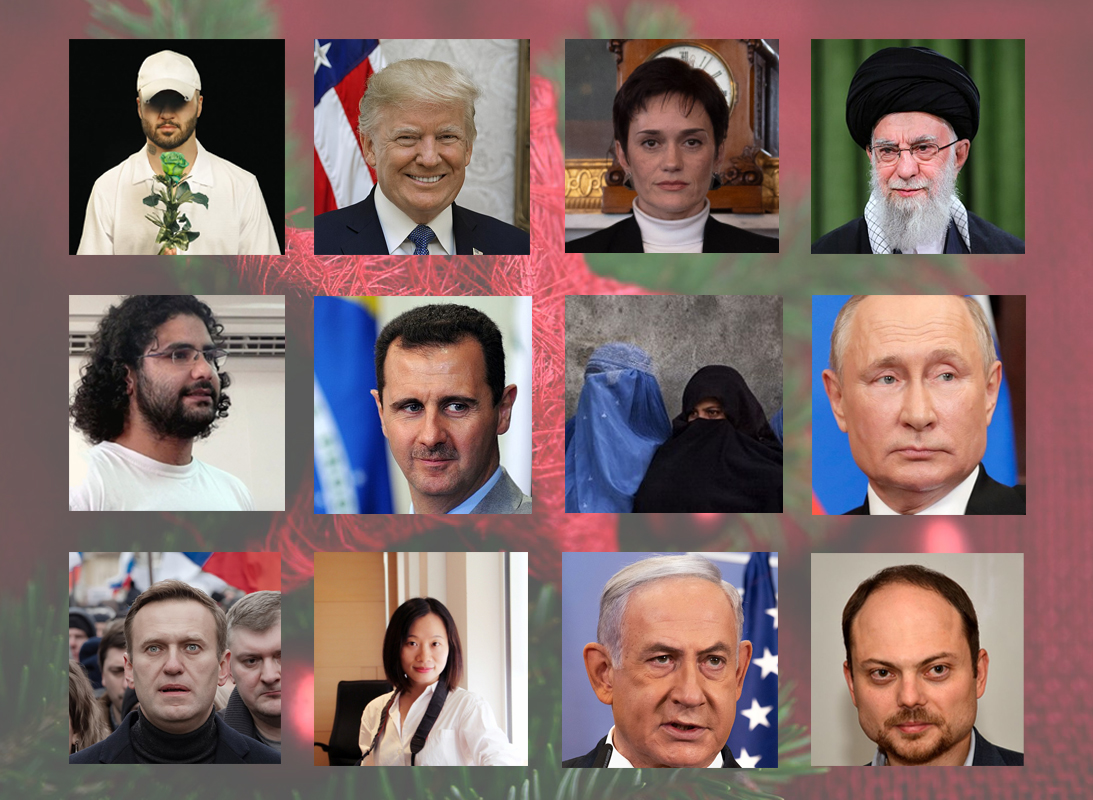Hello, readers. This will be our final newsletter before Index wraps up for the holiday season. It’s been quite the year for freedom of expression, and whilst it’s not easy to summarise in one email, we’ve had a go. We’ve seen severe violations by repressive governments – but we’ve also seen remarkable acts of defiance by political activists, journalists and protesters.
These acts of defiance leave room for hope. In Russia, the year started with the suspicious death of Alexei Navalny whilst in detention, arguably Vladimir Putin’s most vocal critic (you can read an obituary by journalist John Sweeney here). But it was then punctuated with the release of opposition leader Vladimir Kara-Murza in a prisoner swap in August, after relentless campaigning led by his wife, Evgenia, who we ultimately awarded in this year’s Freedom of Expression Awards.
Another huge win for international protest was the release of Iranian political activist Toomaj Salehi in December, following his death sentence being overturned in June. Of course, there are many activists who remain behind bars and Index will continue to campaign for their release. Dozens of pro-democracy campaigners in Hong Kong – the Hong Kong 47 – were given harsh prison sentences of between four and 10 years in November, whilst prominent Chinese #MeToo activist (and previous Index award winner) Sophia Huang Xueqin was sentenced to five years in June. British-Egyptian political activist Alaa Abd el-Fattah was also denied freedom, even after serving his five-year jail term.
Throughout the year, we’ve seen media workers and independent reporting targeted in the most pernicious ways, including through targeted murder, particularly in war zones such as Gaza. Palestine has now become the most dangerous place to be a journalist, and you can read Al Jazeera English journalist Youmna El Sayed’s first-hand account on the risks of covering the conflict here. Meanwhile, media workers in Sudan face similar threats and persecution with seldom international attention, in what has been described as the “forgotten war”.
Alongside the brave pursuits of journalists, regular citizens have also stood up to their governments – with varying degrees of success. Alleged fraudulent elections in Georgia, Mozambique and Venezuela have caused the public to take to the streets in defiance of corruption. Whilst peaceful protests have resulted in violent crackdowns, there is cause for hope: a citizen-led democratic activism project in Venezuela was used to capture accurate voting tallies, and could prove to be a blueprint for fighting election fraud globally in the future, reported Martin Bright. And who could forget South Korea’s “no worries if not!” moment – when president Yoon Suk Yeol’s attempt at enforcing martial law was shut down within six hours thanks to mass assembly.
As we approach 2025, an uncertain future awaits. Repressive laws in Afghanistan have caused it to become the world’s most silenced nation, particularly for women, who under terrifying Taliban morality laws can no longer speak in public. Next year, will the international community stand up for women in the country and rally against what human rights groups are calling “gender apartheid”?
In the USA, a second Trump presidency could also bring with it a chilling impact on free expression, particularly for minority groups. You can read Emma Briant’s fascinating piece on the potential effect on university free thought in the “Land of Liberty” here. Meanwhile, the overthrowing of Syrian president Bashar al-Assad’s repressive regime means thousands of political dissidents have been liberated from the dictator’s inhumane prisons – but what could a future rebel-run regime really mean for the country’s freedoms?
We’ll be back in January. In the meantime, do make sure you read our latest magazine issue, Unsung Heroes: How musicians are raising their voices against oppression. If you’d like to subscribe, we have a special offer running until 3 January – you can enjoy 30% off an annual digital subscription by using the discount code Winter24 at checkout here, meaning it costs just £12.60.
Wishing you all a restful break, and hopefully a brighter 2025.






